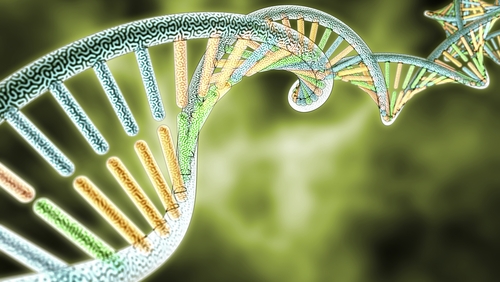Recent research suggests that treatment of cystic fibrosis (CF) by means of improved gene therapy might one day be possible, having shown promising results in a mouse model and cultured cells from human CF patients. The paper, entitled “rAAV-CFTRΔR Rescues the Cystic Fibrosis Phenotype in Human Intestinal Organoids and CF Mice,” was published in American Journal of Respiratory and Critical Care Medicine.
CF, a disease that affects tissues of organs such as the lungs and digestive system, is caused by a mutation in the gene named cystic fibrosis transmembrane conductance regulator (CFTR). This mutation affects the function of chloride ion channel in cells, so that mucus builds up and can lead to frequent bacterial and fungal infections. The disease has no known cure, but its symptoms can be relieved by means of various medications.
A few avenues have already been explored to repair dysfunctional chloride channels: 1) novel drug therapies, where effectiveness of the medicine was observed for only minority of CF patients, and 2) gene therapy, where previous studies demonstrated the treatment’s safety but showed little effect in CF patients.
As gene therapy has substantially progressed in recent years and proven successful in treating other conditions, the researchers in this study re-investigated the possibility of using an improved gene therapy as a means to cure CF.
Experimentally, a harmless virus called “AAV” was utilized to efficiently transport the genome of a healthy copy of the CFTR gene inside CF cells in a mice model and gut cultured cells from CF patients. The results suggest that the method worked.
“We administered the rAAV to the mice via their airways. Most of the CF mice recovered. In the patient-derived cell cultures, chloride and fluid transport were restored,” Professor Zeger Debyser, corresponding author of the study, said in a press release.
Overall, this approach based on improved gene therapy yielded positive results in both the mice and the in vitro cells. However, the researchers estimate that there is still a long way to go before gene therapy can be considered as treatment for CF patients.
“We must not give CF patients false hope. Developing a treatment based on gene therapy will take years of work. For one thing, our study did not involve actual human beings, only mice and patient-derived cell cultures. Furthermore, we still have to examine how long the therapy works. Repeated doses might be necessary. But gene therapy clearly is a promising candidate for further research towards a cure for cystic fibrosis,” Professor Debyser concluded.

